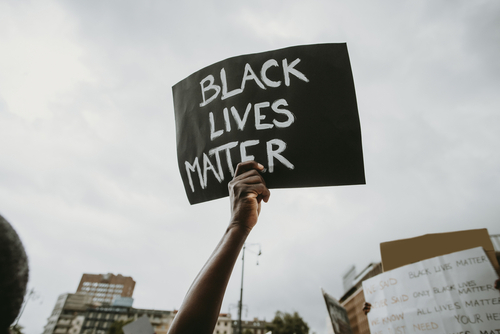On Wednesday, September 20, Ghanaian president Nana Addo Dankwa Akufo-Addo delivered a speech at the 78th session of the UN General Assembly at the New York headquarters. A large audience cheered and applauded the president as he gave his compelling argument on reparations.
Akufo-Addo declared that reparations should be a central concern and need to be paid to the African nations that were taken advantage of by the West over centuries.
“It is time to acknowledge openly that much of Europe and the United States have been built from the vast wealth harvested from the sweat, tears, blood and horrors of the transatlantic slave trade,” he said in a statement reported by the BBC.
“No amount of money will ever make up for the horrors, but it would make the point that evil was perpetrated, that millions of productive Africans were snatched from the embrace of our continent, and put to work in the Americas and the Caribbean without compensation for their labor,” Akufo-Addo also said in his searing speech.
Akufo-Addo is a long-standing advocate for reparations. People’s World reported that the Ghanaian President highlighted last year an ongoing need for deeper conversations around reparations. Ghana is home to one of the largest ports that shipped slaves out of Africa. Below the Elmina castle-which was built by the Portuguese, then seized by the Dutch and eventually the U.K.-Africans were held in filthy dungeons with terrible conditions. Once they were brought onto the ships, they would pass through a gateway they labeled “The Door of No Return.”
Starting in the early 1500’s, the transatlantic slave trade lasted almost 400 years. Over 13 million Africans were trafficked by Europeans and Americans, shipped to the West in the most inhumane conditions, and sold into ultimate servitude. The Equal Justice Initiative reported that over two million Africans died during the Middle Passage. Once they reached their destinations the violent, savage abuse never ended as the West was fueled by racism, hate, greed and entitlement.
The Transatlantic Slave Trade left most of Africa extremely vulnerable with the loss of so many people, and this allowed the West to cause more mayhem by snatching up African land to claim as their own. Colonists recognized wealth in Africa due to the vast bounty of natural resources across the continent. This inspired the Scramble for Africa in the late 1880’s. European nations drew lines across the land to colonize countries. They labeled Africans as primitive beings with their own deplorable sense of white superiority, forcefully took sovereignty and robbed the land for their own interest.
Going into the 1900’s and even more modern times, as African nations tried to take back their land, resources and independence, the West made a habit of sneakily coming in and wreaking havoc to keep these nations submissive to Western interest and influence.
The legacy of the Transatlantic Slave Trade and colonialism continue to casually prevail in the modern world. It has manifested itself into the core of world economics due to its dynamic history of disenfranchising certain nations to uplift others. Europe and the U.S. can be directly credited for the underdevelopment of many African nations. Still, there doesn’t seem to be much accountability for this as school curriculums continue to overlook this history and the West tries to maintain a colonialist grip on Africa-disguising it as “help.”
At the UN General Assembly, President Akufo-Addo also highlighted that Western nations need to submit formal apologies for their countries’ histories partaking in the slave trade and colonialism.
“We do not seek to shirk any responsibility for the problems we face that are of our own making, and it bears repeating that we are not craving for sympathy, and do not want to be a scar on anybody’s conscience,” he said.
“But, we cannot, and the world should not pretend that the present day economic and social conditions of Africa have nothing to do with the historical injustices that have fashioned the structures of the world.”








